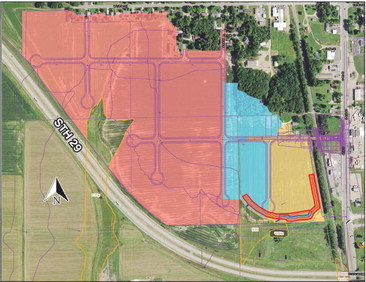Abby to offer two acres in new industrial park


Abbotsford’s planning commission last week approved the general terms of an agreement to provide the owner of Abbotsford Appliance with about two acres of land just west of STH 1...


Abbotsford’s planning commission last week approved the general terms of an agreement to provide the owner of Abbotsford Appliance with about two acres of land just west of STH 1...